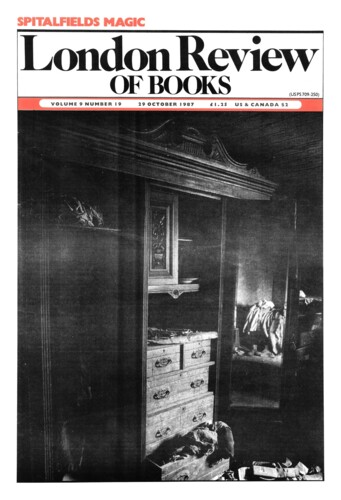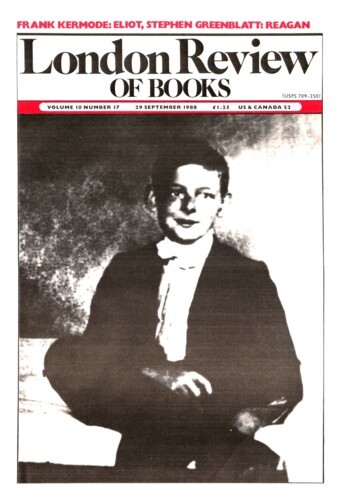Dazeland
Andrew Scull, 29 October 1987
Most recent work on the history of psychiatry has tended to focus on the history of institutions, of ideas, and of the psychiatric profession itself, and to ignore those for whom this vast infrastructure has (at least ostensibly) been erected. It is a historiography, as David Ingleby wittily put it, ‘like the histories of colonial wars’: it tells ‘us more about the relations between the imperial powers than about the “third world” of the mental patients themselves’. For this reason, among many others, Elaine Showalter’s The Female Malady is to be welcomed, for its primary focus is upon this neglected group – for the most part, on female patients.’


